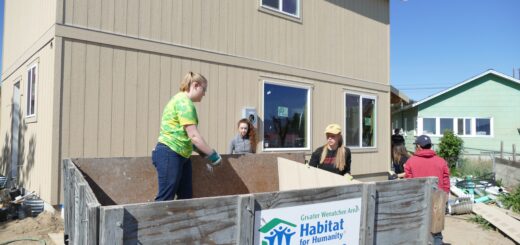Early Learning Part 1: Joint effort started to address early learning crisis in Wenatchee Valley
We have a critical educational challenge in the Wenatchee Valley and a collaborative effort has been launched to develop a creative, community-based solution.
About 75 percent of children entering kindergarten in Wenatchee and East Wenatchee start school behind in reading and 50 percent are behind in math, according to statistics from the Office of the Superintendent of Public Instruction. The data comes from a study called Dynamic Indicators of Basic Early Literacy Skills, according to Columbia Elementary Principal Bill Eagle.
Here’s the problem. Kids who start behind in school almost never catch up. So our local educators have a nearly impossible challenge. This is not just an issue locally. It’s a problem across the state and nationwide and its far less expensive and more effective to address this problem before kids get to school. This shows us what kind of a herculean task that our teachers are facing on a daily basis. Children who begin school behind are more likely to drop out of school, end up in trouble with the law or accessing social services. This represents a massive opportunity gap that will diminish their potential for successful lives.
This presents us with a golden opportunity to rise to the occasion. As a community, pulling together and finding creative solutions, we can find ways to bridge the gap and strengthen our community.
Facilitating the event was Wenatchee native Erich Bolz, the assistant superintendent of special programs at the Richland School District. That community faced a similar situation several years ago and used a similar collaborative approach that has been profoundly successful. “It needs to be a complete community effort,” said Bolz. “There is no silver bullet.”
That’s good news, because the level of cooperation and collaboration in the Wenatchee Valley is on the rise and we have a history of tackling seemingly insurmountable challenges successfully. Alan Walker, the executive director of United Way of Chelan and Douglas Counties has been a long-time proponent of the value of early learning. Most children in the valley under the age of 5 have no formal childcare or preschool setting.
Many parents lack the time, skills and knowledge to help prepare their children. We have massive poverty issues in our communities that make solving this problem difficult, but great communities like ours will not turn their back on kids — any kids. Poverty’s impacts on kids show up by the age of 2, we were told. I was interested to learn that a child from an affluent background has a greater vocabulary at the age of 5 than many adults in poverty. Brain science has shown that the first 36 months is critical in terms of child development and that brain growth is about 90 percent complete by the age of five.
The bottom line is this. Developing a coordinated, comprehensive, community-based approach to jump start early learning is mission critical for our future. This is where we must invest our time, energy and creativity.
Richland is an example of a district that has bridged the gap and Bolz said he’s happy to share everything that has been learned in that district to help us find an effective path forward.
This is a challenge that can only be address as a community. We owe it to the future of our kids and our community to tackle this issue.


